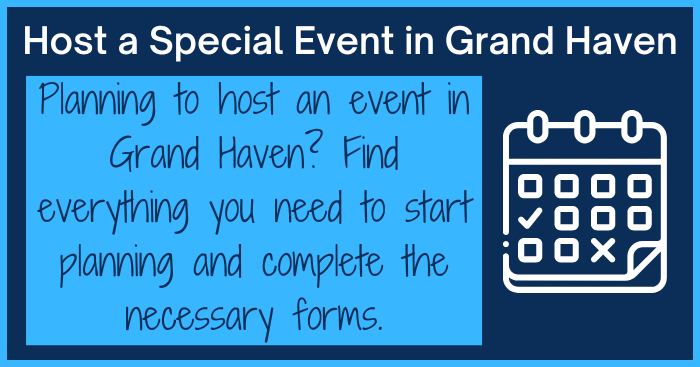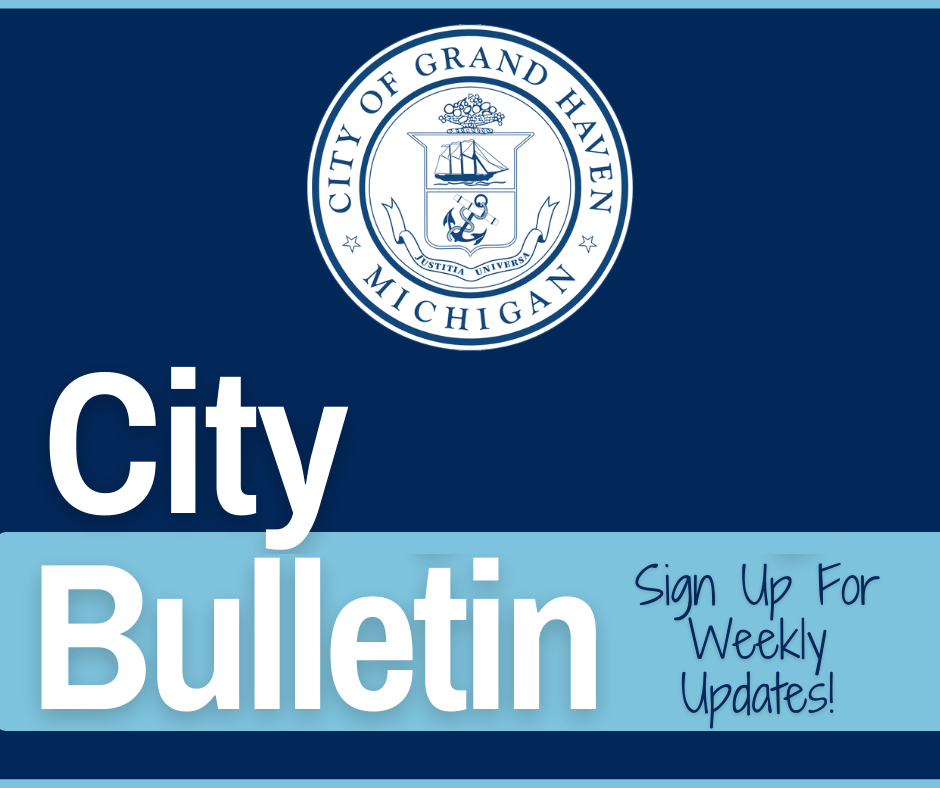Zoning
The City has various zoning districts and each zone has different requirements for lot area, lot width, and building setbacks. The zoning map can help you can determine what the property is zoned. Once the zone district has been determined, the zoning requirements may be reviewed in the zoning ordinance.
The city planner reviews all permit applications such as new dwellings, additions, accessory buildings, fences, and signs. The city planner processes applications for variances, appeals, land divisions and is liaison to the Zoning Board of Appeals. The City planner facilitates site-plan reviews for any commercial, office, industrial or multifamily development and acts as the staff liaison to the Planning Commission.
Step 1 – Conceptual Site Plan Review
For all project types, the City offers conceptual site plan review opportunities prior to the permit submission or pre-application conference. This conceptual site plan review aims to help identify potential issues as early in the process as possible and avoid unnecessary delays during the formal review process. This review also helps to identify what permits or requirements might apply to your project. At any point prior to the submission of an application, you can request a meeting with our City Planner to discuss your project. There is no cost for this service. While a final plan is not necessary for a conceptual site plan review, it is recommended to have the following information. This will allow the City Planner to provide more meaningful feedback and guidance.
- Project location
- Existing land use and zoning
- Intended development (residential, office, retail, commercial, etc.)
- Preliminary sketches (hand-drawn are acceptable)
- Surrounding land uses
- Any other additional project information available
Step 2 – Site Plan Review
This generally begins with a pre-application conference with City Staff and consultants. This meeting allows the City to learn more about the project, provide feedback about the proposed site plan, and identify any issues that need to be resolved prior to public hearings or final approval. Once the plan has been revised based on this feedback, the site plan will be introduced to the Planning Commission for their review and feedback. From here, public hearings will be scheduled with the Planning Commission and City Council for final approval. Once the site plan is approved through the appropriate process, a building permit may be applied for to begin construction.
All development projects in the City require some form of site plan review. Simple residential projects, such as a single-family home or a duplex, or a building addition, may only require a basic site plan review from the City Planner for approval. Larger commercial/multifamily housing projects or Planned Unit Developments may require site plan review and approval from the Planning Commission and City Council. These include all commercial uses, residential uses with more than two dwelling units, Planned Unit Developments and development involving a special land use. Article V of the zoning ordinance lists all the requirements for this process, and you can click here for the site plan review application.
Step 3 – Other Zoning Processes
Some projects may require additional approvals and review prior to the site plan approval or building permit phase. If required, any additional approvals need to be granted before a site plan can be approved. The following subsections describe when these might be necessary and the approval process associated with each.
Zoning Variances
If a project you are planning does not satisfy zoning requirements, you may apply for a variance, or exception from the rules. Historically, variances have been granted only when there are unique circumstances or practical difficulties regarding the property or structure, and when the granting a variance would not be a detriment to neighboring properties. Variances are not granted solely as a means to avoid compliance with the City’s regulations. A public hearing before the Zoning Board of Appeals (ZBA) is a requirement for all variances.
The time period from variance application to public hearing is usually five to seven weeks. The following is a general guide for what to expect when seeking a variance.
- A ZBA application must be submitted along with the non-refundable application fee, a site plan showing all required information, and a brief narrative explaining the request and how it meets the required variance approval criteria.
- City staff will review the application and schedule a date for a public hearing for the request.
- At least 15 days prior to the public hearing, City staff will advertise the public hearing a newspaper of locate circulation, and send notices to all residents within 300’ of the request, and place a sign on the property notifying the public a hearing is scheduled.
- At the public hearing, the ZBA will hear the request. The applicants will be required to attend to speak on their request. Public comment will also be held to get the views of other interested parties, commonly residents, neighbors, or other stakeholders.
- After hearing the request, the ZBA will vote to either Approve the request, Approve the request with Conditions, Deny the request, or Postpone for further information or consideration.
- Approved variances are valid for one year. Variances not acted upon after that time automatically become null and void.
We suggest that you contact the City Planner to better understand the zoning variance process, determine the best course of action, and to confirm the deadlines for application.
Special Land Uses
Special land uses are generally consistent with the purpose of the zoning district in which they are permitted but, due to unique operational characteristics, may not be desirable or compatible in all locations. Therefore, special land uses require City Planning Commission approval to ensure the use does not create detrimental impact on its surroundings. These uses are also subject to additional standards and requirements to mitigate their potential negative impacts.
To receive a Special Use Permit, applicants should first review the Schedule of Uses for Residential and Commercial zones in the Zoning Ordinance to determine if the use is allowable. Special land uses also require a site plan per Article I.
Rezoning
Rezoning requests are an option to change which zoning district a property is located in. Before considering this action, please be aware that rezoning requests are generally reserved for situations where the existing zoning is no longer compatible with current development in the area, or for an area that is recommended for rezoning or change in land use in the current City Master Plan. If you have questions on if your request meets this standard, we recommend speaking to our City Planner at 616-935-3276 to determine if this process is right for you.
For all rezoning requests, a Zoning Change application is required along with information about your request, including any maps, drawings, and other documentation that help explain the reasoning for the request. All rezoning requests are first heard by the Planning Commission, who will ultimately provide a recommendation to the City Council for approval or denial. Public hearings before both the Planning Commission and City Council are required as part of this process. The standards listed in Section 40-121 define the standards when the Planning Commission evaluates rezoning and zoning text amendment requests.
Step 4 – Building Permit
Most new construction in the City requires the submission of a building permit. The City houses the Building Department with the Public Safety. Once all zoning approvals have been provided by the City, the applicant may apply for all building and trade permits may issue at their discretion. Not all projects in the City require zoning approval prior to issuance of building or trade permit, such as interior remodeling, demolition, or replacement of windows.
There are some projects that may not require a building permit. However, these projects may still have zoning restrictions for setbacks and lot coverage that need to be followed. These include the following:
- Single-story accessory buildings 200 sq. ft. or less in area
- Fences
- Retaining walls under 4 ft. in height
- Prefabricated swimming pools that are less than 18” in depth.
Land Divisions
Land divisions, including lot line adjustments, require City Planner or Planning Commission approval. Each resulting parcel and the buildings on it must meet the requirements of the zoning district where it is located. The ordinance sets standards requiring the results to be compatible and harmonious with the surrounding area. Please view or download the lot split and combination application.
The Ottawa County Treasurer’s office now requires a tax payment certification before a local municipality can approve a land division or property line adjustment. This approved certification shall be submitted with your land division application.
Other Zoning and Planning Services
The Planning Department also administers the following:
- Fence Permits
- Sign Permits
- Land Use Permit for Accessory Buildings, Driveways, Patios, other Land Use changes on the property
- Beekeeping and Backyard Chicken Permits
Helpful Links for Property Developers
- Contact Info
- Planning Department
- Development Guide Flowcharts
- Public Participation Plan
- Planned Development Application
- Site Plan Review Application
- Special Land Use Application
- Zoning Change Application
- Fee Schedule
- Planning Commission Meeting Dates and Filing Deadlines
- Zoning Board Meeting Dates and Filing Deadlines
- Boards and Commissions Meeting Schedule
- Downtown Design Guidelines
- Financial Incentives
For more information, or questions about these helpful resources, please contact the City Planner at call 616-935-3276.
Economic Development and Financial Incentives
The City of Grand Haven contracts with the local Chamber of Commerce to provide economic development services.
Abatements and incentives, if awarded, are awarded to varying degrees that are in proportion with the degree of public benefit that results. Consideration for tax abatements and/or incentives is viewed as a privilege, not as a property right.
Abatements include:
Michigan Public Act 146 of 2000: Obsolete Property Rehabilitation Act
Michigan Public Act 198 of 1974: Industrial Property Tax Abatement
Michigan Public Act 210 of 2005: Commercial Rehabilitation Act
Michigan Public Act 255 of 1978: Commercial Redevelopment Act
Michigan Public Act 381 of 1996: Brownfield Redevelopment Act Financing
Economic Development Corporation/Brownfield Redevelopment Authority
The Economic Development Corporation/Brownfield Redevelopment Authority is charged to actively pursue the redevelopment of environmentally contaminated properties, and to assist in development of commercial and industrial properties within the City of Grand Haven. Part of their role includes the management of a revolving loan fund, which may be used to provide “gap” financing for businesses within the city. Please contact staff liaison Emily Greene at 616-847-4893 for more information.






